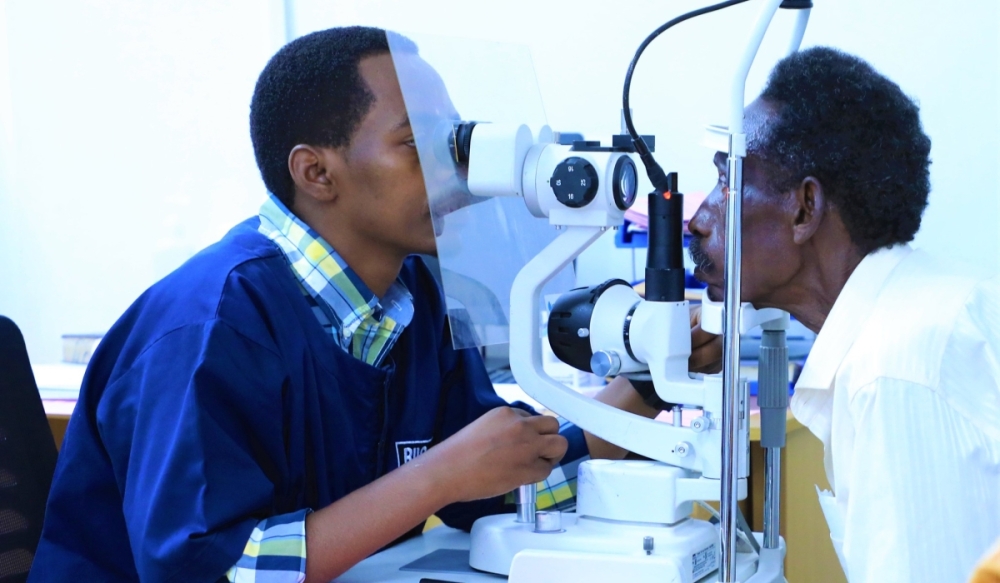

Rwanda joined the rest of the world to observe World Neglected Tropical Diseases Day on Tuesday, January 30 at DP World Kigali, Masaka sector in Kicukiro District.
This occasion was graced by dignitaries from the Ministry of health, Rwanda Biomedical Centre, partners and international agencies.
ALSO READ: Will the next pandemic come from NTDs?
The ministry emphasised continued government commitment to eradicate Neglected Tropical Diseases (NTDs) in Rwanda as well as a close follow up of the 2022 Kigali Declaration on NTDs which was a high-level, political declaration that is mobilising political will, community commitment, resources and action, and securing commitments needed to end suffering caused by NTDs.
Seventeen neglected tropical diseases (NTDs) have been identified by the World Health Organization (WHO). It is estimated that over 1 billion people are infected with NTDs, with a further 1 billion at risk. The majority of NTDs occur in the tropics and sub-tropics.
They are ‘neglected’ because they are almost absent from the global health agenda.
Even today, when the focus is on Universal Health Coverage, NTDs have very limited resources and are almost ignored by global funding agencies.
Neglected Tropical Diseases (NTDs) disproportionately impact the most impoverished communities, lacking access to essential resources like safe water, sanitation, and basic healthcare.
Typically affecting those in lower-income brackets, these diseases, often chronic and slowly progressing, worsen if left undetected and untreated, causing irreversible damage.
ALSO READ: NTDs reduction is a long journey but progress is almost 60% – RBC
Individuals with NTDs experience severe pain and enduring disabilities, placing a significant burden on both their lives and the well-being of their families.
According to the Neglected Tropical Diseases Strategic Plan 2019-2014 from the Ministry of Health, In Rwanda, NTDs include Soil-Transmitted Helminth infections (STH –Ascariasis, Trichuriasis and Hookworms), Schistosomiasis (SCH), Scabies and other ectoparasites (Tungiasis or Amavunja), Podoconiosis (imidido), Rabies, Snakebite envenoming (SBE), Trachoma, Cysticercosis, Mycetoma, Lymphatic filariasis, Onchocerciasis and probably Human African Trypanosomiasis (HAT).
This strategic plan aims to make Rwanda free from NTDs as a public health problem by 2024 through the implementation of WHO recommended public health strategies for prevention and control of NTDs.
The Rwanda Malaria and other Neglected Tropical Diseases annual report for 2022 indicates that Soil Transmitted Helminthiasis (STH) commonly known as intestinal worms and schistosomiasis, STH are the most common NTDs with the overall national prevalence of 41% mostly affecting adults and school going children.
As a response to this, the ministry aims to scale-up Access to NTDs Interventions, Treatment and System Capacity Building. Interventions will include chronic care for NTDs, drug management and distribution to districts, education for behaviour change, community and school-based mass drug administration among others.
ALSO READ: World NTDs Day: A look at common diseases in Rwanda
Neglected Tropical Diseases (NTDs) are not only a result of poverty, but also play a crucial role in its maintenance. The incidence of some NTDs is regarded as a sign of poverty, highlighting their interwoven nature.
These diseases have a wide-ranging social and economic impact, affecting traditional farming practices that are critical for rural survival and limiting individuals' capacity to complete economic and social duties within their families and communities.
The financial burden of pursuing improper remedies, such as traditional healers, contributes to the cycle of bad health and poverty.
NTDs also result in a loss of educational prospects, as afflicted children frequently take on carer tasks for their parents, adding to a generation with limited access to school. The burden extends to the mental health of patients.
As we move towards our common goal of eliminating NTDs in Rwanda, there will be a need to strengthen advocacy, visibility and profile of NTD control and elimination and this will involve creation of awareness at all levels through the Ministry of Health communication center and through traditional media.
We will also need Scaling up NTD Transmission Control Interventions through preventive chemotherapy, environmental manipulation, sanitation and hygiene and health education for behaviour change.
The World Health Organization’s 2030 road map for neglected tropical diseases also emphasizes the importance of strengthened, institutionalized post-elimination surveillance in affected countries.
The Kigali declaration on NTDs acknowledges that NTDs are diseases of poverty and inequity. Tackling NTDs will reduce poverty, address inequity, strengthen health systems, increase human capital and build resilient communities, bringing us closer to achieving universal health coverage and the SDGs.
This declaration also shows that by adopting people-centred approaches and working across sectors, we can meet and sustain the NTD targets in the SDGs and the WHO 2030 NTD road map.


